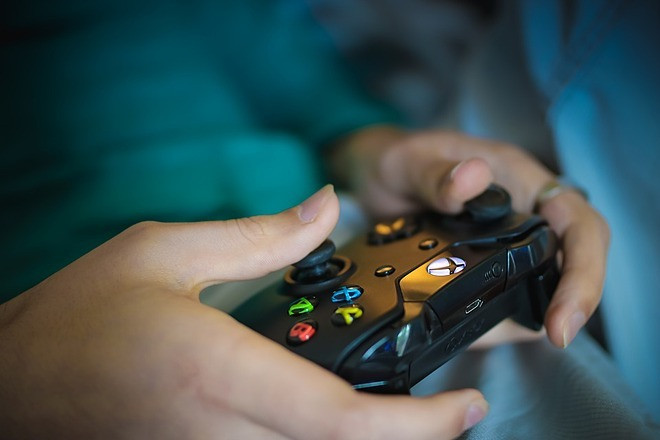The boy is mentally ill because of his game addiction.
Patient Minh, 21 years old, lethargic due to game addiction, was hospitalized for treatment with sedatives and possibly electric shock.
"At home, he stays in his room, doesn't wake up, often skips meals, sometimes plays until 4am before going to sleep," the father said when taking his son to the Central Hospital for examination. Minh has been playing games nonstop for 5 years, often skipping school to play games, playing 8-10 hours a day.
"Every time my parents advised me, I got angry and mad. Sometimes I even broke things around me and left the house to play outside," the father said.
Doctors said the patient showed signs of depression and mental disorder due to game addiction. The young man was transferred to the Psychiatric Department for treatment.
Doctor Cao Tien Duc, who directly examined the patient, determined that Minh was severely addicted to the internet, manifested by slow communication, poor memory, soft voice, and physical exhaustion... Minh's inpatient treatment regimen included sedatives, daily antidepressants, vitamins, and brain tonics. If the condition does not improve, electroshock therapy will be required.
|
Gaming addiction is a mental disorder that requires treatment and rehabilitation according to a specific protocol. Photo: Parent Zone |
The World Health Organization (WHO) includes Internet and gaming addiction in the group of mental disorders, characterized by persistent and recurrent gaming behavior. Game addicts have difficulty controlling the level of gaming (such as frequency, intensity, time, context), and even lose control over gaming.
Symptoms of gaming addiction can be observed, such as children being unable to escape the temptation of playing games, deciding whether to play games or not, when to stop... At first, they intended to play for 1-2 hours, later it became 7-8 hours. When not allowed to play, patients show signs of irritability, cursing, reacting strongly to relatives, even threatening suicide.
The second symptom is similar to depression. Game addicts have a low mood, lose interest in everything, feel tired, have irregular eating and sleeping habits, causing a significant decline in occupational function, study function, and social communication function. When asking patients directly about playing games, they often tend to avoid talking about the time they spend playing games.
A game addict will lead to psychomotor changes, including agitation, slow movement, slow communication, low voice, small amount of language, poor content, even no speech. In addition, the patient also has memory disorders.
According to Dr. Duc, the treatment time for game addicts is difficult to predict. After being discharged from the hospital, the patient can still relapse. Therefore, the family needs to manage the use of phones, internet access devices... train children to have healthy living habits and have monthly check-ups for mental health problems.
* Patient name has been changed.



